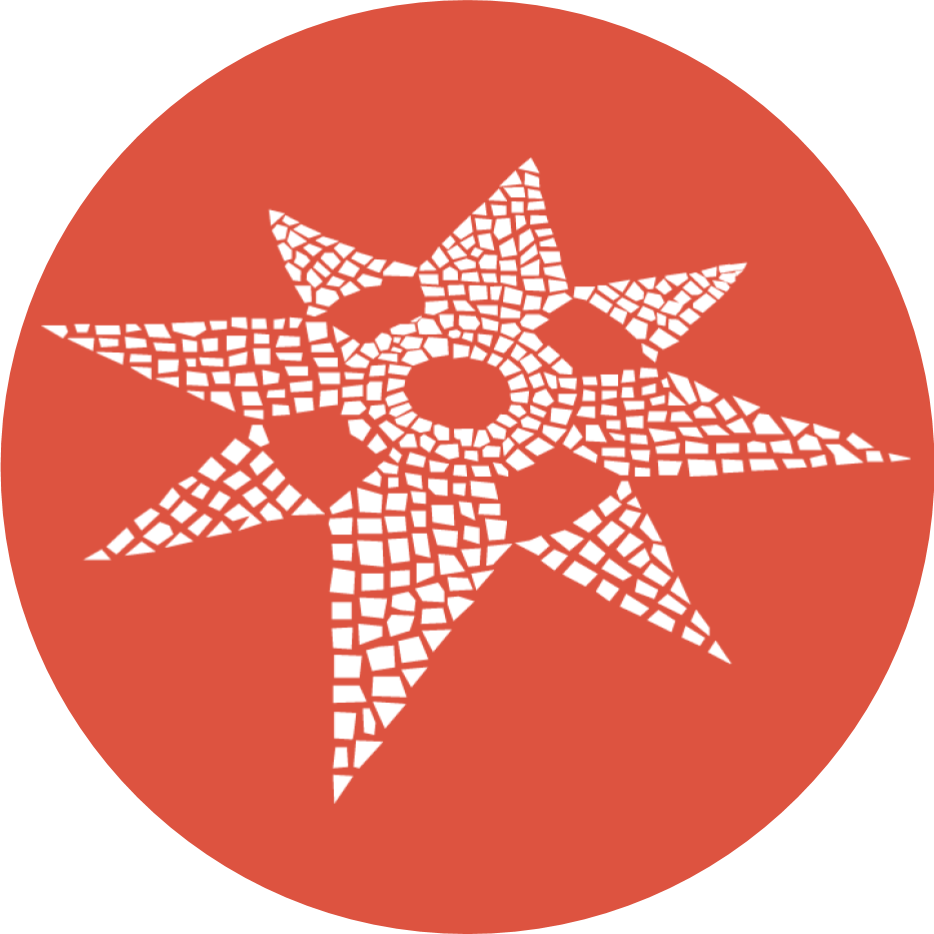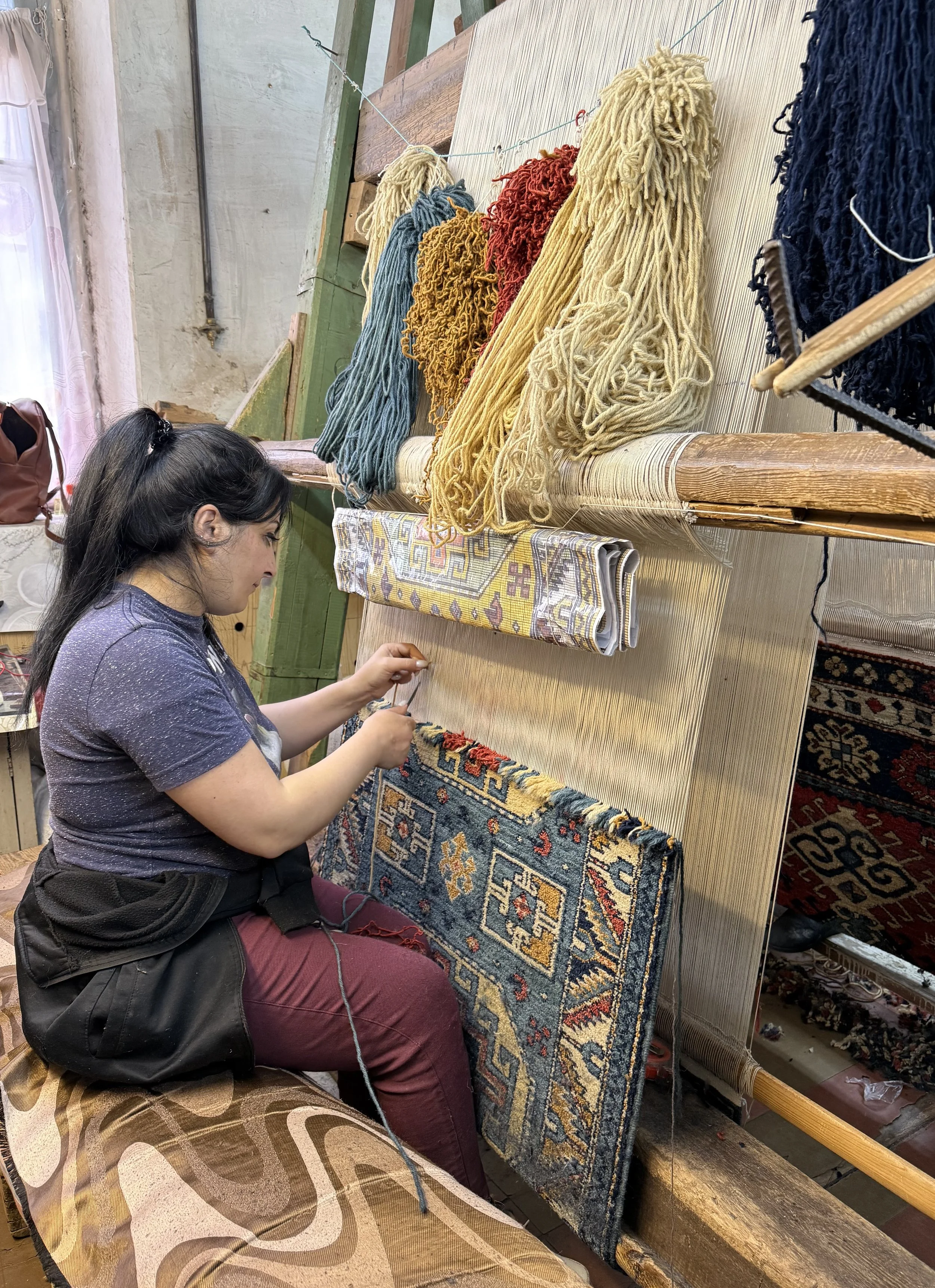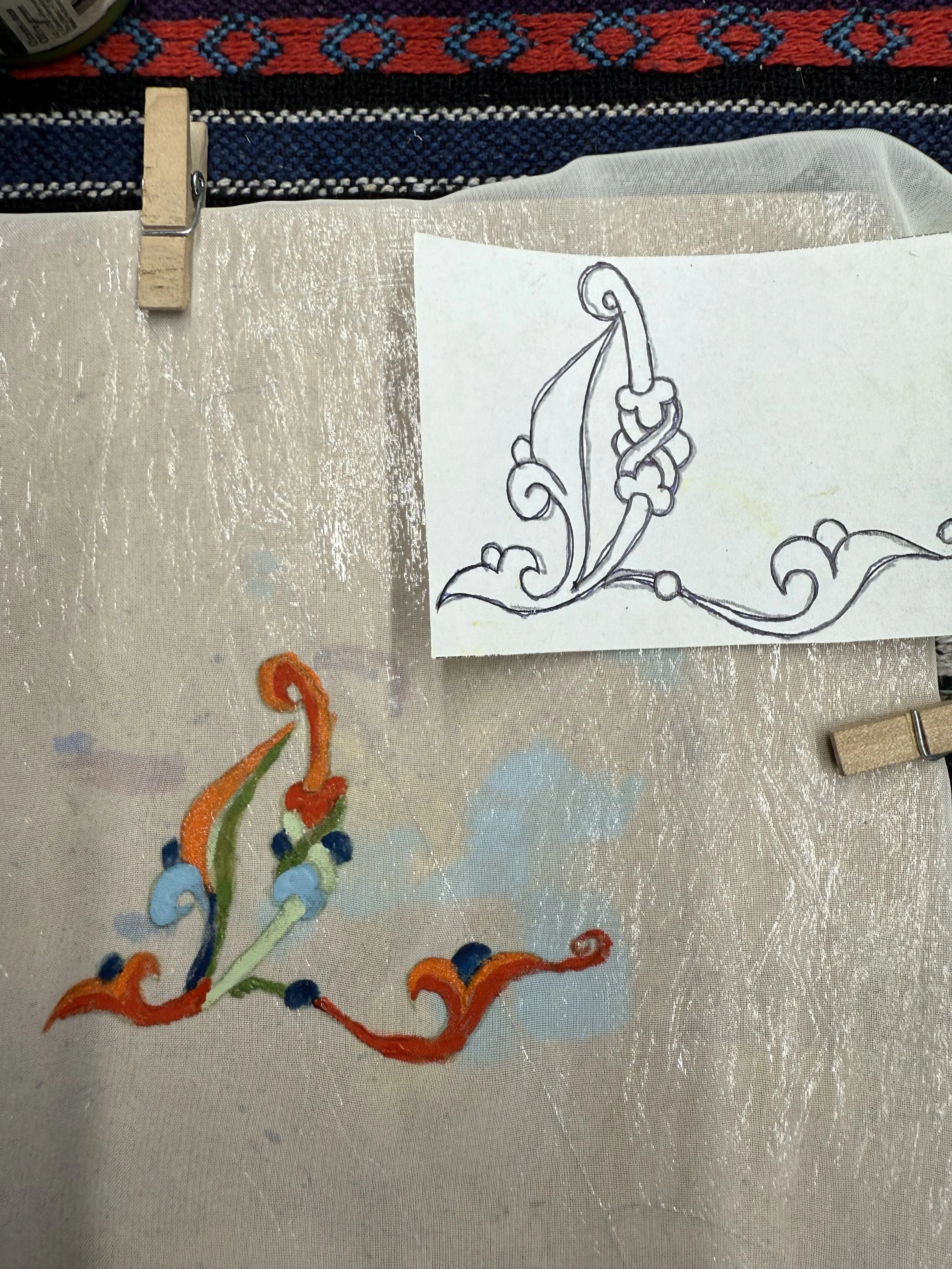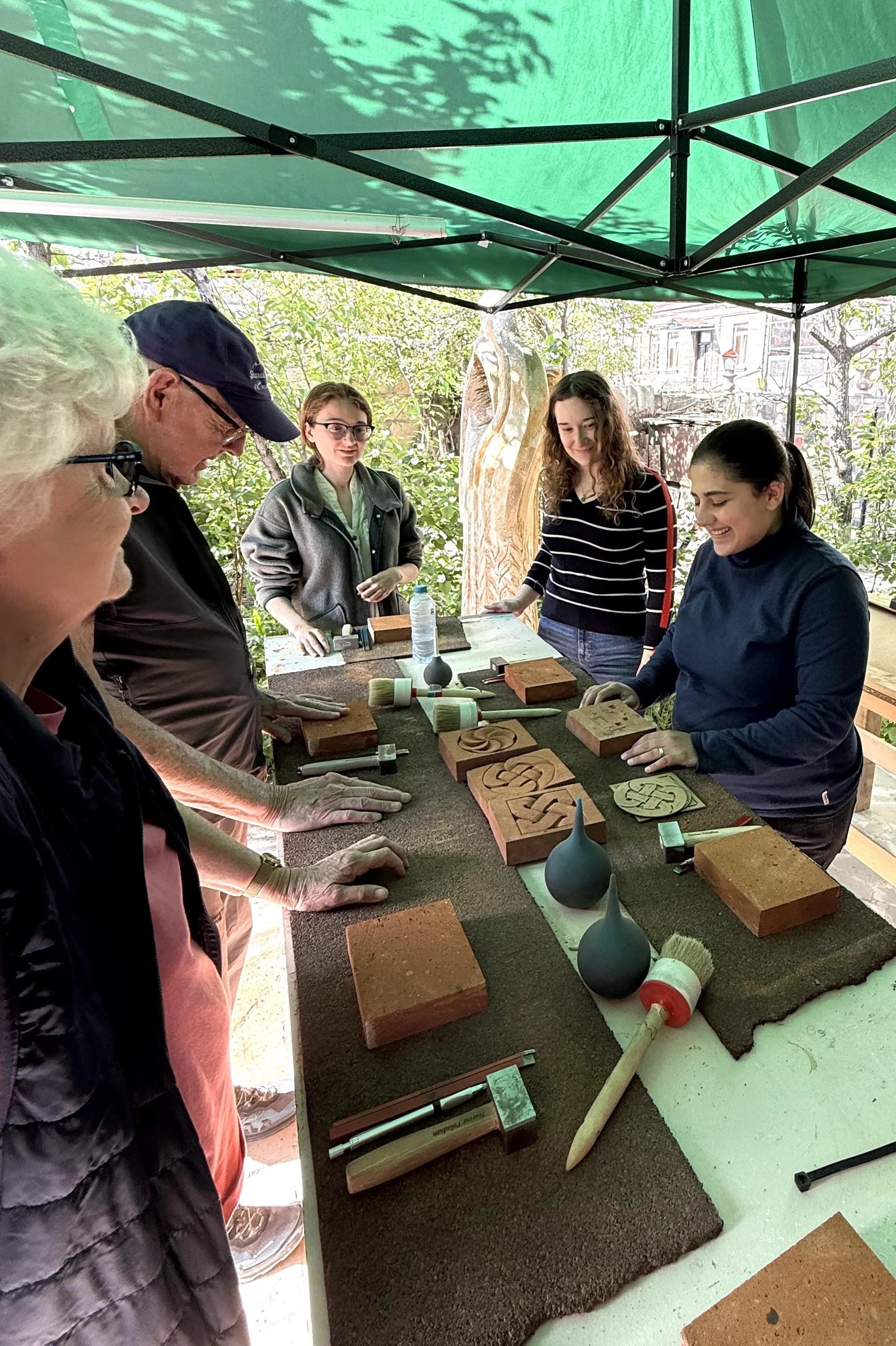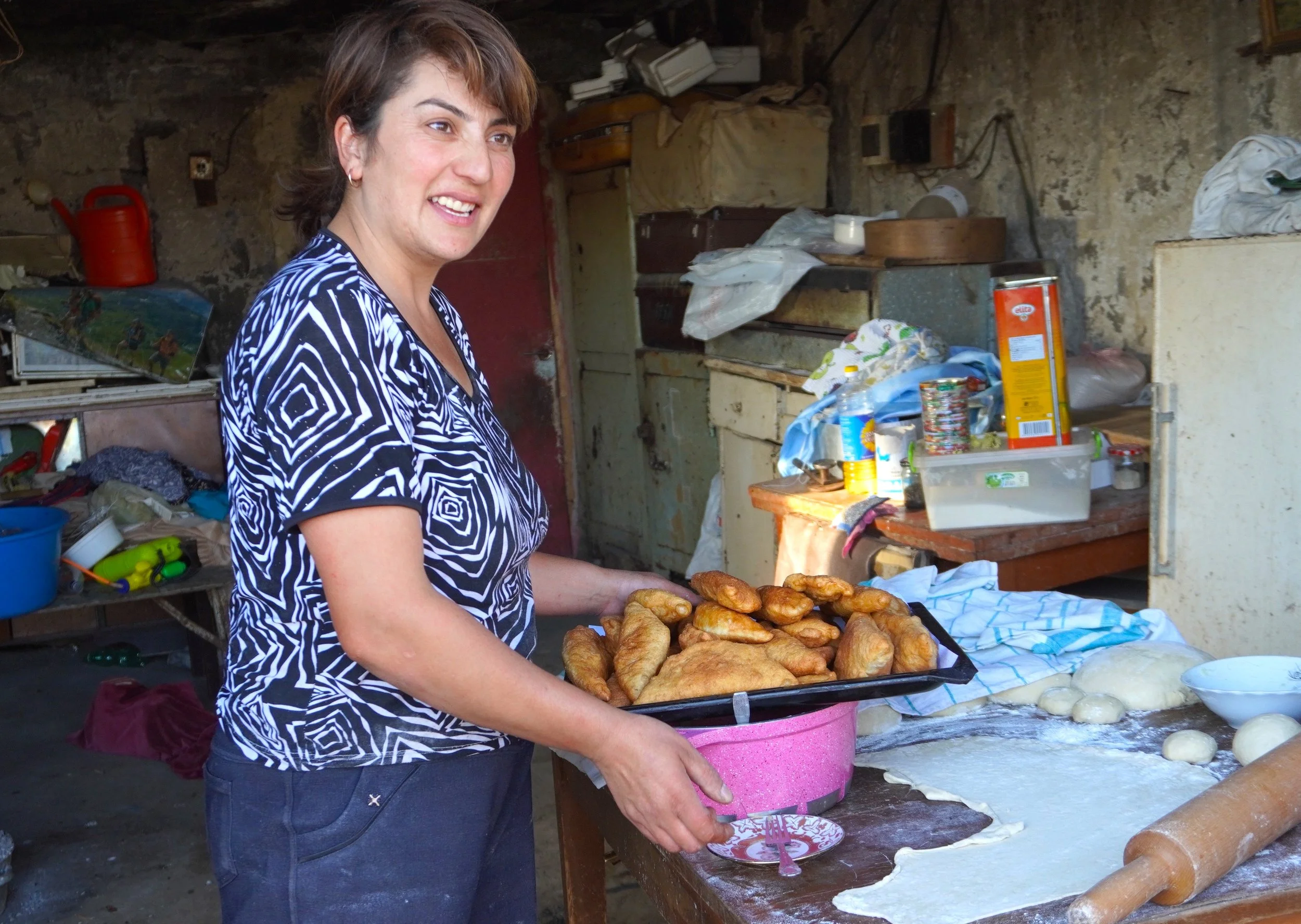Preserving Gyumri’s Cultural Heritage: A Tale of Armenia's Women Entrepreneurs from AiP's Director
As Program Director of Adventures in Preservation (AiP), I made my 6th trip to Gyumri, Armenia, earlier in 2025. It turned out to be a remarkable experience that brought unexpected surprises almost daily. These came in the form of small businesses established to save various aspects of Gyumri’s cultural heritage – all started by women entrepreneurs.
Armenian Rug
For me, one of the most inspiring was Armenian Rug where weavers create rugs using traditional dyes and patterns. Qnarik started this initiative shortly after the 1988 earthquake, which destroyed most businesses and eliminated the vast majority of jobs held by women. Quarik found a damaged 1949 apartment building that was no longer fit to live in, but largely structurally sound. She set up two rooms with looms and trained local women in the art of weaving.
She built the business over the ensuing years, struggling to find buyers. A huge room on the 2nd floor where dragon rugs used to be woven, now sits idle. However, 10 women currently work in a small room on the ground floor, where the sounds of weaving and comraderie are heard throughout the day. Quarik now has buyers outside of Armenia, and with a number of women waiting to be hired, hopes she’ll soon be able to expand and take on more weavers.
A weaver crafting an artisanal rug
Zanan taraz
In a restored historic building, now a vibrant cultural center, we made another exciting discovery. “Zanan” taraz invites visitors and local residents into Armenia’s rich heritage through an immersive and artistic experience. Taraz is not just traditional clothing, but also jewelry, footwear, hats and more. We were invited to try on outfits from around the Shirak region and get a photo souvenir. The Zanan brand was founded by Hasmik, who is determined to offer a heartfelt journey into Armenian tradition and community spirit.
Then the fun really began when we sat down to learn about and paint Armenian bird-letter script, a unique fusion of calligraphy and illustration. We each used the first letter of our name, and painted our script onto scarves – another beautiful souvenir.
Armenian bird-letter script
Master stone mason
I first met Narine Poladian in 2023, and even though not a new experience for me, our visit this trip was a highlight for the group. Narine is the first female in Armenia allowed to have the title of Master stone mason, as well as the first female to carve cross-stones or khachkars. She’s from Lebanon, of Armenian ancestry, and returned to Armenia to receive training. Her skill rapidly elevated her to the rank of Master, and she moved to Gyumri, the City of Artisans, to set up her business.
We walked along a quiet historic street to Narine’s shop to take her class. It was hard to believe she could successfully teach us, complete novices, the basics of cross-stone carving. As wefound out, she is not only a master carver, but also a gifted teacher. We were each given a rectangular stone, a pattern and tools. With two hours and excellent instruction, we were surprised to see amazing little cross-stones emerge. As you can imagine, such a positive experience is so popular that her classes are now in demand across Europe. In just five years, she has achieved remarkable success, receiving orders from around the world and taking on several apprentices.
Narine Poladian teaching a class
Traditional Armenian cooking
Violetta has been part of the AiP experience since 2018. She invited us into her home in the village of Tosghamarg, in the hills outside of Gyumri, for an evening of cooking and eating with her family. We took turns rolling out and cutting traditional Armenian pasta – harder than it sounds, but great fun. Violetta maintains a garden and orchard, growing and preserving all the family’s fruits and vegetables, and we sampled it all. The family also has a herd of sheep, so it’s a joint effort worked around their children’s college classes.
Many people in northern villages are engaged in agricultural activities, livelihoods that become especially difficult during the harsh winter. AiP has been supporting the development of rural tourism in northern Armenia by empowering women and supporting them in their own environment. By sharing her traditional cooking techniques and family recipes with visitors, Violetta raised funds to start a small dried fruit business that now brings in a modest yet meaningful income for her family. We will continue to support similar initiatives throughout the Shirak Province to help revitalize rural life and preserve cultural heritage.
Violetta with her creations
We’ll return to Armenia next year, and I can’t wait to see what surprises it will bring.
